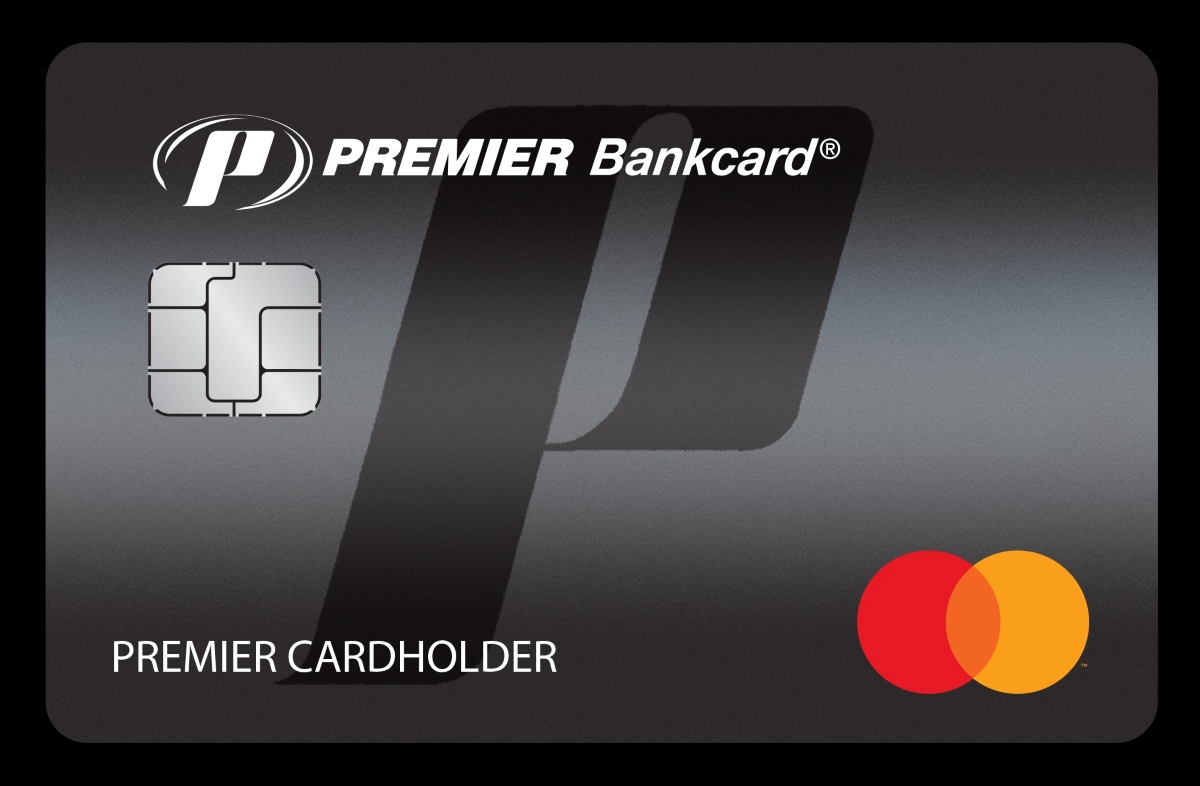

Finance
How To Get Your First Business Credit Card
Modified: March 10, 2024
Discover how to obtain your first business credit card and manage your finances effectively for your business growth.
(Many of the links in this article redirect to a specific reviewed product. Your purchase of these products through affiliate links helps to generate commission for LiveWell, at no extra cost. Learn more)
Table of Contents
- Introduction
- What is a Business Credit Card?
- Why Get a Business Credit Card?
- How to Qualify for a Business Credit Card
- Understanding Your Credit Score
- Researching Business Credit Card Options
- Comparing Interest Rates and Fees
- Submitting Your Business Credit Card Application
- Tips for Building Credit with Your First Business Credit Card
- Conclusion
Introduction
When starting a business, one of the most important financial tools you can have is a business credit card. This type of credit card is specifically designed to meet the unique needs of businesses and can provide a wide range of benefits. From managing cash flow to earning rewards and building credit, a business credit card can be a valuable asset for any entrepreneur.
But what exactly is a business credit card? How does it differ from a personal credit card? And why should you consider getting one for your business? In this article, we’ll explore the answers to these questions and provide you with valuable information on how to get your first business credit card.
A business credit card is a financial tool that is issued to a business rather than an individual. It is used for making business-related purchases, tracking expenses, and managing cash flow. Business credit cards often come with a higher credit limit compared to personal cards, and they offer additional features that are tailored for the needs of businesses.
So why should you get a business credit card? First and foremost, it helps you separate your personal and business expenses. By having a dedicated credit card for your business, you can easily track and manage your business-related transactions. This separation is crucial for accurate bookkeeping and simplifies tax reporting.
Furthermore, a business credit card can provide you with access to a line of credit that can be used to cover unforeseen expenses or take advantage of business opportunities. It acts as a safety net, allowing you to manage fluctuations in cash flow more effectively.
Additionally, many business credit cards offer rewards programs. These programs allow you to earn points, cash back, or other incentives on your business purchases. These rewards can add up quickly and provide an extra boost to your business’s bottom line.
Now that we’ve covered the basics of business credit cards and their benefits, let’s dive into the process of getting your first business credit card. In the following sections, we’ll explore how to qualify for a business credit card, research the best options, compare interest rates and fees, and submit your application.
So, whether you’re just starting your own business or looking to expand your current operation, a business credit card can be a powerful financial tool. Let’s continue our journey and learn how to secure your first business credit card.
What is a Business Credit Card?
A business credit card is a financial tool specifically designed for businesses to handle their expenses and manage their finances. It functions similarly to a personal credit card, but with added features and benefits that cater to the unique needs of businesses.
One of the key differences between a business credit card and a personal credit card is that a business credit card is issued under the name of the business itself, rather than an individual. This allows businesses to establish their own credit history, separate from personal credit history.
Business credit cards offer a variety of features that can help streamline business operations and financial management. These features can include expense tracking and reporting tools, customizable spending limits for employees, and integration with accounting software.
One of the major advantages of using a business credit card is the ability to separate business and personal expenses. Having a dedicated card for business transactions simplifies bookkeeping and makes it easier to differentiate between personal and business-related expenses during tax time.
Business credit cards also offer higher credit limits compared to personal credit cards. This is beneficial for businesses that may need additional funds to cover larger expenses or unexpected cash flow gaps. The higher credit limit provides more flexibility and purchasing power for business-related needs.
In addition to the financial management benefits, many business credit cards come with rewards programs. These programs allow businesses to earn points, cash back, or other incentives for the purchases they make with the card. These rewards can be valuable for reducing expenses or reinvesting back into the business.
It’s important to note that while a business credit card provides numerous benefits, it also comes with responsibilities. Business owners should ensure that they use the card responsibly and make timely payments to maintain a positive credit history for their business.
In summary, a business credit card is a specialized financial tool that offers a range of features and benefits tailored for businesses. It helps separate personal and business expenses, provides a higher credit limit, offers rewards programs, and simplifies financial management. By understanding the unique advantages of a business credit card, business owners can make informed decisions about their financial tools and effectively manage their expenses.
Why Get a Business Credit Card?
As a business owner, you may be wondering why you should consider getting a business credit card. Isn’t a personal credit card sufficient for your business needs? While a personal credit card can be used for business expenses, there are distinct advantages to having a dedicated business credit card. Let’s explore some of the key reasons why getting a business credit card is beneficial for your business:
- Separation of Personal and Business Finances: Having a business credit card allows you to clearly separate your personal and business expenses. This separation is essential for accurate bookkeeping, tax reporting, and maintaining a clean financial record. It also helps establish your business’s credit history, separate from your personal credit.
- Easier Expense Tracking: Using a business credit card makes it easier to track your business expenses. Most business credit card providers offer detailed transaction summaries, expense categorizations, and the ability to integrate with accounting software. This streamlines your financial management and reduces the time spent on manual expense tracking.
- Improved Cash Flow Management: A business credit card provides a revolving line of credit, which can be beneficial for managing your business’s cash flow. It offers flexibility when dealing with unexpected expenses or uneven revenue patterns. By accessing credit when needed, you can cover short-term gaps in cash flow without disrupting your business operations.
- Business Rewards and Incentives: Many business credit cards come with rewards and incentive programs that are tailored to business needs. These programs allow you to earn cash back, points, or travel rewards on your business expenses. By leveraging these rewards, you can save money, reinvest in your business, or even fund business trips.
- Build Business Credit History: Establishing a strong credit history is crucial for your business’s long-term financial success. Having a business credit card and using it responsibly can help build positive credit history for your business. This can open doors to better financing options, loans, and favorable terms in the future.
Now that you understand the benefits of having a dedicated business credit card, it’s important to note that responsible use is key. Ensure that you make timely payments, keep your credit utilization low, and only use the card for legitimate business expenses. By doing so, you can reap the rewards and financial advantages that come with a business credit card.
Overall, getting a business credit card provides numerous advantages for your business. It simplifies expense tracking, improves cash flow management, offers rewards and incentives, and helps build a solid credit history. By considering these benefits, you can make an informed decision about obtaining a business credit card that aligns with your business goals and financial needs.
How to Qualify for a Business Credit Card
Qualifying for a business credit card requires meeting certain criteria set by the credit card issuer. While the specific requirements may vary depending on the card provider, there are common factors that determine eligibility. Here are some key steps to take to increase your chances of qualifying for a business credit card:
- Establish a Legitimate Business Entity: To be eligible for a business credit card, you should have a legal business entity. This could be a sole proprietorship, partnership, limited liability company (LLC), or a corporation. Make sure your business is properly registered and has the necessary documentation to prove its legitimacy.
- Separate Your Personal and Business Finances: It’s important to maintain a clear separation between your personal and business finances. Establish a separate business bank account and maintain accurate records of your business expenses. This will help demonstrate the financial independence of your business and enhance your credibility when applying for a business credit card.
- Build a Strong Personal Credit History: Whether you’re applying for a personal credit card or a business credit card, your personal credit history will be taken into consideration. Maintain a good credit score by making timely payments, keeping your credit utilization low, and avoiding negative financial behaviors. A strong personal credit history will increase your chances of approval for a business credit card.
- Prepare Your Business Financials: Some credit card issuers may require you to provide financial information about your business when applying for a business credit card. This can include your business’s annual revenue, profit/loss statements, and tax returns. Be prepared to provide these documents to support your creditworthiness and demonstrate the financial stability of your business.
- Demonstrate Business Stability: Credit card issuers prefer to lend to businesses that have been operating for a certain period of time. While the specific time frame varies, most credit card issuers prefer businesses that have been in operation for at least one year. However, there are options available for new businesses or startups as well. Be ready to provide evidence of the stability and viability of your business when applying for a business credit card.
It’s important to research different credit card providers and their eligibility requirements to find the best fit for your business. Some issuers may have stricter criteria, while others may be more lenient. Consider applying for a business credit card with a provider that aligns with your business’s needs and financial situation.
Lastly, keep in mind that applying for a business credit card will result in a hard inquiry on your credit report. This can temporarily reduce your credit score. Therefore, it’s advisable to only apply for a credit card when you are confident you meet the requirements and have a good chance of approval.
By following these steps and understanding the qualifying criteria, you can improve your chances of obtaining a business credit card that suits your business’s financial needs.
Understanding Your Credit Score
When it comes to applying for a business credit card, understanding your credit score is of utmost importance. Your credit score is a numerical representation of your creditworthiness and plays a significant role in determining your eligibility for credit cards, loans, and other forms of financing. Here is a breakdown of how credit scores work and why they matter:
What is a Credit Score?
A credit score is a three-digit number ranging from 300 to 850 that summarizes your creditworthiness based on your credit history. It is calculated by credit bureaus using a variety of factors, including your payment history, credit utilization, length of credit history, types of credit, and recent credit inquiries. The higher your credit score, the more likely you are to be approved for credit and receive favorable terms.
Why is a Credit Score Important for a Business Credit Card?
When you apply for a business credit card, the credit card issuer will assess your personal credit score along with other factors to determine your creditworthiness. Since your business credit history might be limited or nonexistent, the issuer will rely on your personal credit score as a measure of your ability to handle credit responsibly. A higher credit score indicates a lower risk and increases the likelihood of approval for favorable credit limits, interest rates, and rewards.
Improving Your Credit Score
If your credit score is lower than you’d like, there are several steps you can take to improve it:
- Pay your bills on time: Late payments have a negative impact on your credit score. Set up reminders and automatic payments to ensure timely payments.
- Keep your credit utilization low: Aim to use less than 30% of your available credit. High utilization suggests financial instability and can negatively affect your score.
- Maintain a positive credit history: The length of your credit history impacts your score. Keep older accounts open and active, even if you don’t use them regularly.
- Diversify your credit mix: Having a mix of credit types, such as credit cards, loans, and mortgages, can positively impact your credit score. However, only take on credit that you need and can handle responsibly.
- Minimize new credit inquiries: Each time you apply for credit, it results in a hard inquiry on your credit report, which can temporarily lower your score. Limit your credit applications to when you truly need them.
- Regularly check your credit report: Review your credit report for any errors or discrepancies. If you find any issues, dispute them with the credit bureaus to have them corrected.
Monitoring Your Credit Score
It’s important to regularly monitor your credit score to stay informed about your financial health. Many credit card issuers provide free access to credit scores as part of their services. Additionally, you can obtain a free copy of your credit report once a year from each of the major credit bureaus through AnnualCreditReport.com.
By understanding your credit score, taking steps to improve it, and monitoring it regularly, you can increase your chances of qualifying for a business credit card and accessing favorable credit terms. Maintaining a good credit score demonstrates your financial responsibility and positions you as a reliable borrower.
Researching Business Credit Card Options
When it comes to choosing the right business credit card, conducting thorough research is essential. There are numerous credit card options available, each with different features, rewards programs, interest rates, and fees. Here are some steps to follow when researching business credit card options:
- Assess Your Business’s Financial Needs: Start by evaluating your business’s specific financial needs and goals. Consider factors such as your typical spending patterns, cash flow requirements, desired rewards, and any specific features or benefits that would be advantageous for your business.
- Compare Card Providers: Research different credit card providers that offer business credit cards. Look for reputable banks, credit unions, and financial institutions that have a track record of providing reliable and customer-friendly services.
- Review Card Features: Compare the features offered by different business credit cards. Check if they offer expense tracking tools, employee spending limits, integration with accounting software, and other features that are important for your business’s financial management.
- Consider Rewards Programs: Rewards programs can vary significantly among different business credit cards. Determine whether cash back, travel rewards, or points-based rewards would be most beneficial for your business. Take note of any spending categories that offer higher rewards rates or bonus rewards to maximize your benefits.
- Evaluate Interest Rates and Fees: Carefully review the interest rates and fees associated with each card. Look for introductory offers, balance transfer options, annual fees, and penalty fees. Consider your business’s expected repayment behavior and choose a card with favorable terms.
- Read Customer Reviews: Read reviews and testimonials from other business owners who have used the desired credit cards. Their firsthand experiences can provide insights into the card’s customer service, ease of use, and overall satisfaction.
- Consider Additional Benefits: Some business credit cards come with additional perks, such as travel insurance, purchase protection, extended warranties, or access to a dedicated business support team. Evaluate whether these additional benefits align with your business’s needs and offer added value.
- Check Eligibility Requirements: Review each card’s eligibility requirements to ensure that you meet the criteria. Consider factors such as minimum credit score, annual revenue thresholds, and any specific documentation or qualifications needed for approval.
- Weigh the Pros and Cons: Make a list of the top contenders based on your research and compare their pros and cons. Look for a card that aligns with your business’s financial needs, offers competitive rewards and benefits, and has favorable terms and fees.
Researching business credit card options ensures that you select a card that best fits your business’s financial goals and requirements. By taking the time to compare different providers, read reviews, and consider the features, rewards, and costs, you can make an informed decision and choose a card that will help you optimize your business’s financial management and growth.
Comparing Interest Rates and Fees
When researching business credit cards, it’s crucial to compare the interest rates and fees associated with each card. These factors can significantly impact the cost of borrowing and the overall value of the card for your business. Here are some key points to consider when comparing interest rates and fees:
- Annual Percentage Rate (APR): The APR represents the cost of borrowing on a yearly basis. It includes the interest rate and any additional fees charged by the credit card issuer. Look for a business credit card with a competitive APR. Keep in mind that some cards offer an introductory APR for a certain period, which can be beneficial if you plan to carry a balance.
- Introductory Offers: Some business credit cards offer promotional introductory rates, such as 0% APR for an initial period, balance transfer offers, or waived annual fees for the first year. Consider how long the introductory offer lasts and whether it aligns with your business’s financial needs.
- Cash Advance Fees: If you anticipate needing to take cash advances from your business credit card, pay attention to the associated fees. Cash advance fees can be higher than the standard APR and may come with additional transaction fees.
- Balance Transfer Fees: If you plan to transfer balances from existing credit cards to your new business credit card, check if there are balance transfer fees. These fees are usually a percentage of the amount transferred and can impact the overall cost of consolidating your debts.
- Annual Fees: Many business credit cards charge an annual fee for card membership. Consider whether the benefits, rewards, and features offered by the card justify the annual fee. Some cards waive the annual fee for the first year, so take advantage of any introductory offers that can help offset the cost.
- Foreign Transaction Fees: If your business involves international transactions, be aware of foreign transaction fees. These fees are typically a percentage of each foreign transaction and can add up if you frequently do business overseas or make purchases in foreign currencies.
- Late Payment and Penalty Fees: Review the late payment fees and penalty fees charged for making payments past the due date or exceeding your credit limit. It’s important to understand the consequences of late or missed payments and consider whether the associated fees are reasonable.
- Additional Fees: Some credit card issuers may have additional fees, such as fees for requesting additional cards for employees, fees for expedited delivery of replacement cards, or fees for returned payments. Understand these additional fees and factor them into your comparison.
When comparing interest rates and fees, weigh the costs against the overall benefits and rewards offered by the card. A card with slightly higher fees may provide more lucrative rewards or better features that ultimately outweigh the cost. It’s essential to assess your business’s borrowing and spending patterns to choose a credit card with the most favorable interest rates and fees for your specific needs.
By carefully evaluating interest rates and fees, you can select a business credit card that offers a good balance between cost and value, ensuring that it aligns with your business’s financial goals and requirements.
Submitting Your Business Credit Card Application
Once you have conducted thorough research and identified the business credit card that best suits your needs, it’s time to submit your application. Following the proper steps and providing accurate information is crucial for a successful application process. Here are some key points to consider when submitting your business credit card application:
- Gather Required Documentation: Before starting the application, gather all the necessary documents, such as your business’s legal entity documents, tax identification number, proof of address, financial statements, and any other information the credit card issuer may require. Having these documents readily available will streamline the application process.
- Complete the Application Form: Fill out the application form accurately and thoroughly. Double-check the information provided to ensure there are no errors or inconsistencies. Be prepared to provide details about your business, its structure, financials, and any other relevant information required by the credit card issuer.
- Provide Personal Guarantee: Most business credit card applications, especially for small businesses or startups, require a personal guarantee from the business owner. This means you’ll take personal responsibility for any outstanding debts on the card. Understand the implications of a personal guarantee and be prepared to provide the necessary information.
- Submit Supporting Documents: Along with your application, you may need to submit additional supporting documents, such as financial statements, tax returns, or bank statements. Ensure that these documents are up to date, accurate, and relevant to support your creditworthiness and help the credit card issuer assess your application.
- Review Terms and Conditions: Before submitting your application, carefully read and understand the terms and conditions of the credit card. Pay attention to interest rates, fees, rewards programs, grace periods, and any other terms that may affect your use of the card.
- Consent to a Credit Check: By submitting your application, you are giving the credit card issuer permission to perform a credit check. This check allows them to assess your creditworthiness and determine whether to approve your application. Be aware that a hard inquiry will be recorded on your credit report, which may temporarily impact your credit score.
- Submit the Application: Once you have completed the application form and gathered all the required documents, submit your application as per the credit card issuer’s instructions. Some providers offer online applications, while others may require physical forms to be mailed or faxed. Follow their guidelines to ensure a smooth application submission.
- Follow Up on Application Status: After submitting your application, it’s a good practice to follow up with the credit card issuer to ensure they have received your application and to inquire about the status of your application. This can help you stay informed and address any additional information or documentation they may need.
Remember, each credit card issuer may have slightly different application procedures and requirements. Take the time to familiarize yourself with the specific instructions provided by the credit card issuer of your chosen card.
By carefully completing and submitting your business credit card application, along with the necessary documents and information, you increase the likelihood of a successful application. Be truthful and accurate in your disclosures, and don’t hesitate to reach out to the credit card issuer if you have any questions or need clarification. With proper preparation and attention to detail, you’ll be one step closer to obtaining your business credit card.
Tips for Building Credit with Your First Business Credit Card
Obtaining your first business credit card is not only a tool for managing expenses, but it is also an opportunity to build and establish your business’s credit history. Building a positive credit history is crucial for future financing options and favorable terms. Here are some tips to help you effectively build credit with your first business credit card:
- Use Your Card Responsibly: Use your business credit card responsibly and avoid unnecessary and frivolous spending. Make purchases that are essential for your business’s operations and stick to a budget. Focus on building a history of on-time payments and responsible credit usage.
- Make Timely Payments: Pay your credit card bill on time, every time. Late payments can negatively impact your credit score and make it more difficult to secure future financing. Set reminders or automate payments to ensure you never miss a due date.
- Keep Your Credit Utilization Low: Aim to keep your credit utilization ratio below 30%. This means using less than 30% of your available credit limit. Keeping your utilization low shows creditors that you are not overly reliant on credit and are effectively managing your finances.
- Avoid Maxing Out Your Credit Limit: While it’s important to use your credit card, avoid maxing out your credit limit. Maxed-out cards can be perceived as a sign of financial strain and may negatively impact your credit score. Instead, aim to use a reasonable portion of your available credit.
- Regularly Monitor Your Credit: Keep a close eye on your credit report and monitor it regularly. Check for any discrepancies or errors and report them to the credit bureaus immediately. Monitoring your credit allows you to spot and address any issues that may affect your business’s credit history.
- Avoid Opening Multiple Credit Accounts at Once: While it may be tempting to open multiple credit accounts, especially if you receive offers, be cautious. Opening too many accounts within a short period can negatively impact your credit score. Focus on building a strong credit history with your first business credit card before considering additional credit lines.
- Review Your Credit Card Statements: Take the time to review your credit card statements regularly. Check for any unauthorized charges and ensure all transactions are accurate. This helps you stay on top of your business’s expenses and maintain a clear overview of your financial activities.
- Stay Proactive with Communication: If you encounter any financial difficulties or anticipate challenges in making payments, communicate with your credit card issuer proactively. They may be willing to work with you to develop a temporary payment plan or offer other solutions to manage your situation effectively.
- Gradually Increase Credit Limit: As you establish a positive credit history with your business credit card, you can consider requesting a credit limit increase. A higher credit limit can lower your credit utilization ratio and show the credit bureaus that you can handle a larger credit line responsibly.
- Prioritize Long-Term Creditworthiness: Building credit takes time, so prioritize maintaining a positive credit history for the long term. Develop sound financial practices, utilize credit strategically, and make responsible decisions that contribute to the consistent growth of your business’s creditworthiness.
Building credit with your first business credit card is a gradual process that requires responsible credit usage and consistent financial management. By following these tips and maintaining healthy financial habits, you’ll establish a solid credit history that opens doors to future financing opportunities and favorable terms for your business.
Conclusion
Obtaining your first business credit card can be a valuable step in managing your business’s expenses, improving cash flow, and building a strong credit history. By understanding what a business credit card is and the benefits it offers, you can make an informed decision about whether it’s the right financial tool for your business.
Throughout this article, we have explored the importance of researching different business credit card options, comparing interest rates and fees, and understanding how to qualify for a business credit card. We have also discussed tips for building credit with your first business credit card, which can significantly impact your business’s future financing opportunities.
When researching business credit cards, consider factors such as the features, rewards programs, interest rates, and fees offered by different providers. Compare these features and benefits with your business’s financial needs and goals to choose the card that aligns best with your specific requirements.
Once you have obtained your business credit card, use it responsibly by making timely payments, keeping your credit utilization low, and monitoring your credit regularly. By building a positive credit history, you enhance your business’s creditworthiness and increase your chances of accessing future financing options on favorable terms.
Remember, building credit takes time and consistent effort. Stick to good financial practices, manage your credit responsibly, and prioritize long-term creditworthiness. By doing so, you’ll position your business for success and take advantage of the benefits that come with a strong credit history.
In conclusion, getting your first business credit card is an exciting step towards managing your business’s finances and building credit. With proper research, responsible credit usage, and a focus on long-term financial health, you can make the most of this valuable financial tool for your business’s growth and success.














